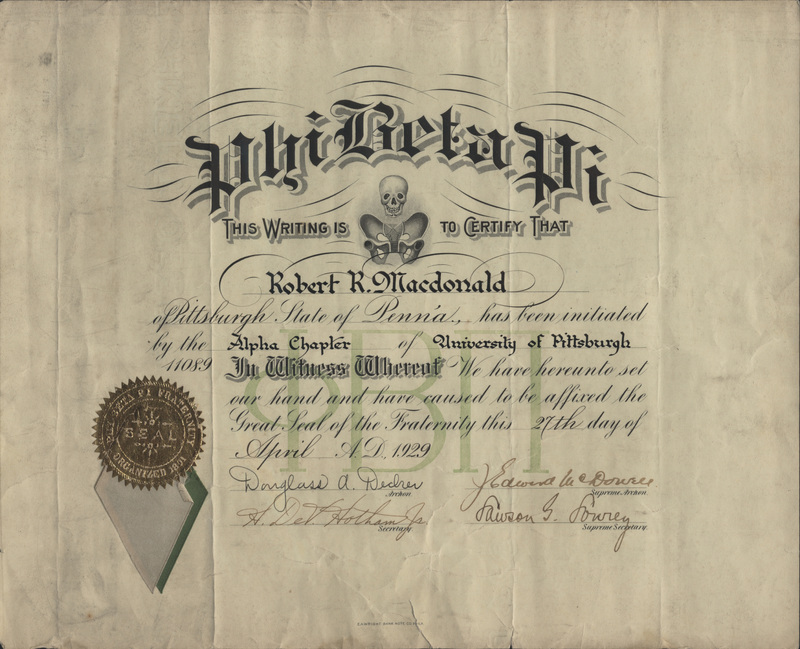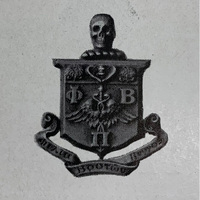Medical Fraternities
At the end of the 19th-century, the medical students in Pittsburgh would be able to join medical fraternities. The work load of a contemporary medical student and his peer from the past, is probably comparable. Neither had time for goofing around. The coursework was demanding and many students took extra assignments to accelerate the graduation, get more experience, or supplement living expenses. The memoirs are filled with complains about how tired and busy students were. They did, however, find time to start a new organization.
Phi Beta Pi (ΦΒΠ), professional fraternity for medical students, was founded in Western Pennsylvania Medical College in 1891. Initially, it was organized as anti-fraternity society to limit the influence of fraternities already existing at the university. However, it dropped its anti-fraternity character very soon. As a result, its Alpha Chapter was founded as a college fraternity in May of 1891. Over the years it chartered 62 chapters all over the United States and Canada. Today only one chapter is active at the University of Texas.
The students also had other options and could choose other national medical fraternities. The Chi Chapter of the Phi Rho Sigma (ΦΡΣ) national fraternity was organized in Pittsburgh in 1894. It was followed by the Delta Chapter of the Nu Sigma Nu (ΦΡΣ) fraternity registered in 1895. And, one generation later, three other medical fraternities were present in Pittsburgh: Phi Delta Epsilon (ΦΔΕ) with its Chapter Nu was available since 1912, Alpha Omega Alpha (ΑΩΑ) with its Chapter Gamma of Pennsylvania since 1916, and Sigma Sigma Epsilon (ΣΣΕ), founded in 1918. This was another local fraternity organized at the University of Pittsburgh by the women students of the Medical College! It is interesting that four of the five founding doctors were also the members of the Theta Chapter of the Women's National Medical Society - Zeta Phi (ΖΦ), which ten years later began to represent the Sigma Sigma Epsilon group.
Nevertheless, at the end of the 19th-century medical students in Pittsburgh could join their own fraternity - Phi Beta Pi (ΦΒΠ) for fellowship and professional guidance.


